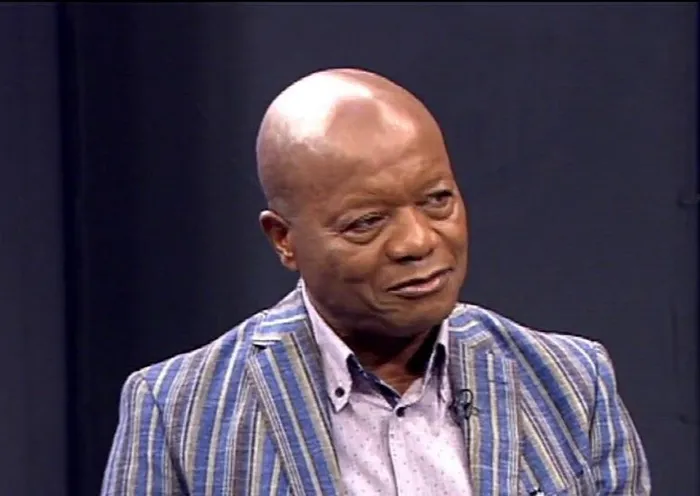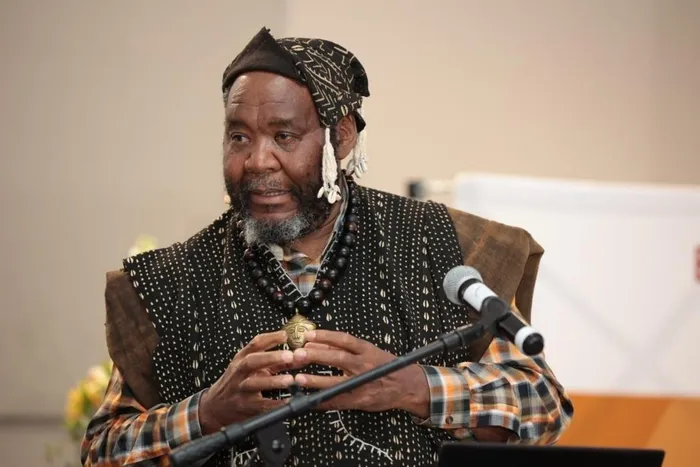The tragedy of the commons seems to give way to the tragedy of the private

Vusi Mavimbela in his title Brazil in Africa places whitening as an econo-politico and social construct.
Image: SABC
The need for the national convention and a national dialogue is substantively a Socrates dilemma of democracy visiting South Africa.
In this context the merchant politicians trade in the illiterate plebiscite as both currency and merchandise.
This sis a feature where people have been stripped of culture and geography and remain with economy that is represented by substantively consumptive rather than productive power.
An economy is not one when it is stripped of culture and geography.
This is the reality of the Black and Coloured people in South Africa, and there is little wonder that there is no economy of which they can talk.
Their language is not an economic asset in public discourse and in advertising through the media.
The invisibility of this substantial majority accounting for 90% of the population have no economy except as consumers.
Thus, they can easily be aggregated by the deep value chains.
Language can be very liberating.
The sitting of the National Convention took place on Friday the 15th as scheduled and with or without the legacy foundations that distanced themselves from the convention.
Digestion of the posturing followed and asked the question whether or not the convention was a success or not.
Now that the national question has been raised long before August the 15th what could be relevant could be what are the deeper questions plaguing South Africa.
Is the convention a matter of the last thirty one years of post-apartheid South Africa?
Is it about the forty six years of apartheid era from 1948 to 1994?
Is it about the period of 1652 to date with intervening moments as markers of the period? Is it about the Mapungubwe civilization that is carbon dated to 900 AD.
Or will include the Khoi and the San whose presence is carbon dated to two thousand years ago. What will be its organizing philosophy – will it be Ubuntu as defined by Morena Mohlomi three hundred years ago?
The patio-temporal scales have the potential to unravel many embedded limitations that the notion of BEE or BBBE may contain.
Vusi Mavimbela in his title Brazil in Africa places whitening as an econo-politico and social construct.
If this consideration is in the mix, then the context of South Africa which Mavimbela argues with conviction takes on even much longer time horizon of millennia after millennia.
But what is especially important is that Mavimbela, the Khoi and the San, Mapungubwe, Morena Mohlomi, the Bolubedu, Madiba and the expose by Lt General Mkhwanazi converge on the same current date and all raise a strand of inhumanity of one race against the other that marked the entirety of the millennia.
On the 25th I was invited at a conference of the Linguistics Society of South Africa to address the topic of African Languages and Their Role in the Political Economy.
The topic would have not been timely ahead of the much needed national dialogue between merchant politicians and the plebiscite.
The merchant politicians are laced with the white dominant class that has accommodated under the clamour for inclusivity a captured middle class that received shares and together they trade the plebiscite as currency and merchandise.
A hitherto tragedy of the private plays out especially in the context of artificial intelligence and big data whereby the plebiscite is aggregated by the private and spawn them as merchandise and currency.
The boardroom discussions are about optimising on the plebiscite for profit maximization, including from the R 350 SDR that government extended beyond Covid.
Blacks now contribute 62% in purchasing power, up from 45% a decade ago driven largely by the R350 that just buys essentials.
The Bolobedu of the Limpopo, a matriarchal nation has been subjugated under the Pedi and a whole nation and their language has been wiped out.
Yet there could be a lot to be learned about gender equality from matriarchy and lineage. We have lost a knowledge base.
Take advertising on public broadcasting.
Truly little is provided on this front for the Black community and there are no inroads by this 90% of consumers who contribute 62% of purchasing power.
Language is a powerful instrument of communication and is liberative when well positioned.
The dialogue especially in the context of artificial intelligence suits neatly in Large Language Models as trainers of AI and underlying that is culture.
We have had much about the tragedy of the commons.
Today the shoe is on the other foot – the tragedy of the private.
They are ready to aggregate the majority at the expense of progress and Ubuntu.
The dialogue should aim at digging deep into millennia as represented by the whitening programme that Mavimbela discusses in the Brazil in Africa to Lt General Mkwanazi’s expose that unleashed the real dialogue.
Dr Pali Lehohla is a Professor of Practice at the University of Johannesburg, a Research Associate at Oxford University, a board member of Institute for Economic Justice at Wits and a distinguished Alumni of the University of Ghana. He is the former Statistician-General of South Africa.

Dr Pali Lehohla is a Professor of Practice at the University of Johannesburg, among other hats.
Image: Supplied
BUSINESS REPORT